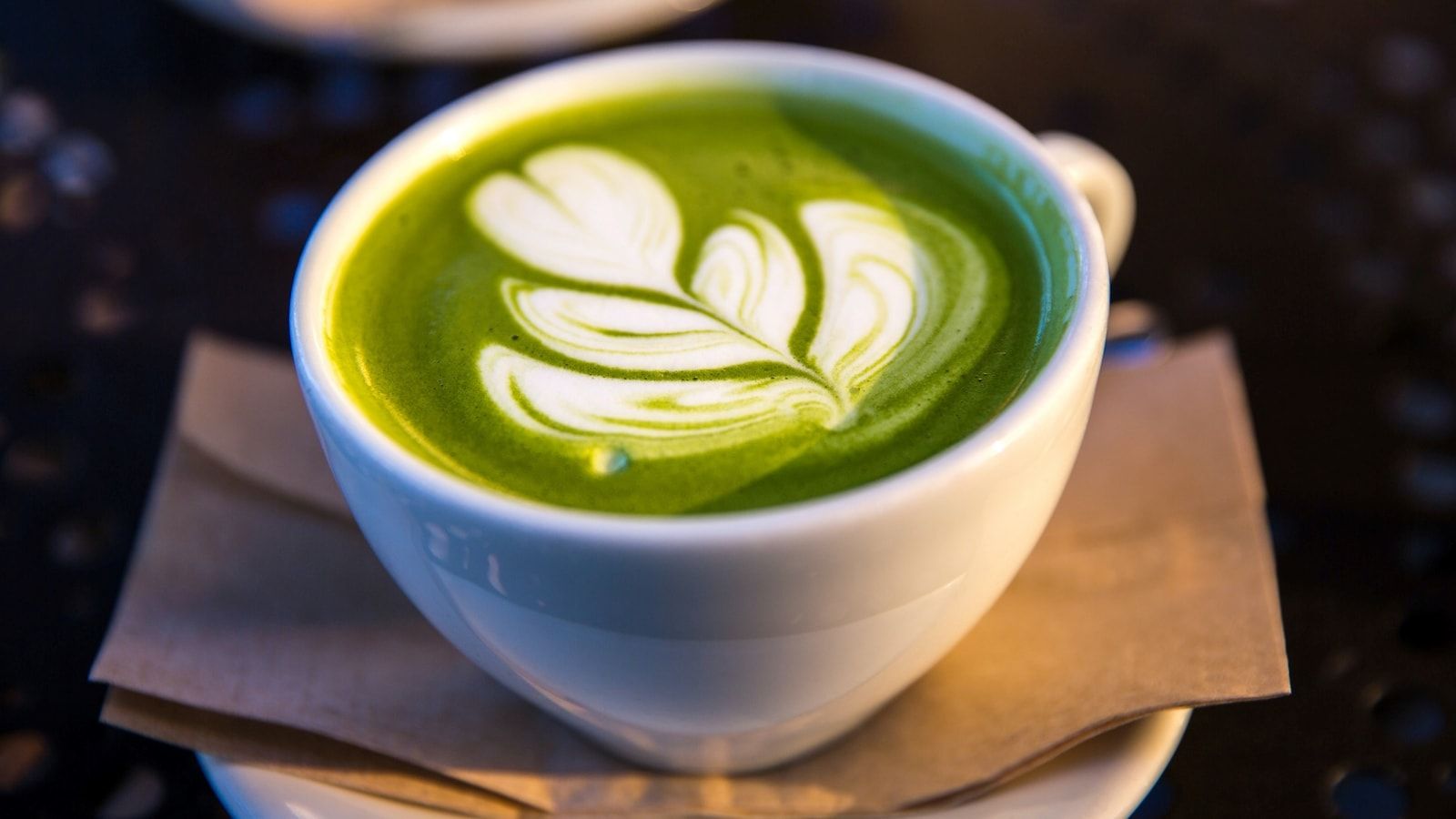Nestled in the heart of traditional Japanese ceremonies, green tea matcha emerges not just as a beverage but as a symbol of culture and health. Its captivating, vibrant green hue paints a story of nature’s brilliance, while its origins echo centuries of reverence and tradition.
However, beyond its aesthetic appeal and rich history lies a treasure trove of health benefits that have captivated the modern world. Researchers, nutritionists, and health aficionados across the globe have been entranced by this verdant powder, deeming it a superfood powerhouse. Its reputation isn't simply based on cultural anecdotes or its calming taste; rigorous scientific studies have placed matcha on a pedestal, showcasing the myriad of health benefits it imparts.
As we marvel at the rich history and captivating allure of green tea matcha, it's time to unearth some scientifically proven benefits that make this verdant elixir a revered staple in health circles.
The Green Symphony of Health Benefits
From its robust antioxidant profile to its mood-enhancing properties, let's discuss how matcha sings its song of well-being.
1. The Catechin Chronicle - Nature's Antioxidant Arsenal
Green tea matcha stands tall not merely as a beverage but as a veritable fount of catechins, potent antioxidants that nature generously offers. The presence of EGCg (epigallocatechin gallate) acts as a protective shield, intercepting and neutralising harmful free radicals that threaten cellular health.
Such free radicals, often stemming from pollution and unhealthy diets, can lead to cellular degradation, which matcha helps avert. The resulting benefits? A stronger cellular structure, reduced signs of ageing, and resilience against various diseases. A study published in the "National Library of Medicine" in 2020 highlighted the significant presence of EGCg in green tea and its antioxidant potential.
🍃 Herbal Wisdom: Regular consumption of catechins can strengthen cellular defence mechanisms, promoting overall longevity.
2. The Oxidative Oasis - Harnessing Harmony Within
At the heart of our cells, a battle rages daily — the combat against oxidative stress. And incorporating green tea matcha into one’s regimen is akin to sending in reinforcements. This powerful tea assists in harmonising the internal cellular environment.
The outcome? A body that retains its youthful vigour for longer and a significant reduction in the susceptibility to certain chronic ailments, especially those that thrive in a high oxidative environment. Research from "Clinical Nutrition" in 2006 emphasised the role of green tea in reducing oxidative stress.
3. Caffeinated Clarity - Energise, Not Agitate
Beyond its lush green hue and tranquil origins, matcha is a prime source of 'Theophylline', a variant of caffeine that does more than just wake you up. It's a gentle nudge rather than a startling alarm, offering sustained alertness without the frantic energy often associated with coffee.
Plus, it works in synergy with other naturally occurring compounds in matcha to provide a holistic experience of rejuvenated energy and clarity. According to a 2010 study, the combination of L-theanine and caffeine in matcha has been shown to enhance cognitive functions, particularly attention and memory.
⚕️ Good-to-Know: Matcha’s caffeine content is absorbed more slowly compared to coffee, thanks to the presence of other compounds, ensuring a longer, smoother energy boost.
4. The L-Theanine Lullaby - Alert yet At Ease
In the realm of amino acids, L-Theanine holds a special place, especially for those seeking mental tranquillity without drowsiness. Found predominantly in matcha, it aids in achieving an almost meditative state of focused calm.
Imagine being in the eye of a storm; while there's chaos around, you remain centred and undisturbed — that's the kind of cognitive serenity L-Theanine offers. A 2016 study conducted at Northumbria University, UK, spotlighted L-Theanine's unique calming effect without inducing drowsiness.
5. Metabolism's Maestro - Ignite the Internal Furnace
Green tea matcha is more than a drink; it’s a metabolic maestro orchestrating a faster calorie-burn rate. Each sip holds the potential to elevate one's metabolic tempo, turning the body into a more efficient calorie-burning machine.
It's nature's way of helping us maintain our energy expenditure and facilitating a healthier weight management routine. The American Journal of Clinical Nutrition in 2008 showcased green tea's potential to increase energy expenditure and fat oxidation.
🚴Looking to amplify the benefits of green tea matcha further? Cycle your way to enhanced calorie burning with our top home exercise bike recommendations!
6. Appetite's Anchor - Nature's Gentle Restraint
Ever felt the urge to snack mindlessly, even when you're not genuinely hungry? Matcha, with its unique components, offers a subtle solution. By acting as an appetite modulator, it gives you better control over your hunger cues, ensuring that you eat when you need to, not just because you want to. A 2014 publication in "The Journal of Nutritional Biochemistry" explored the effects of green tea on appetite regulation.
🍵 Pro Tip: Incorporating matcha into morning routines can set a tone of mindful eating throughout the day.
7. Cholesterol's Custodian - Guarding the Heart's Gates
Our heart, the incessant worker, needs all the protection it can get. Regular sessions with matcha prove beneficial in regulating cholesterol — specifically the harmful LDL cholesterol. With controlled cholesterol levels, the heart can operate more efficiently, free from the potential risks of arterial blockages and related complications. A comprehensive review in the "Nutrition Journal" in 2020 found consistent evidence of green tea's positive impact on cholesterol levels.
8. Pressure's Peacekeeper - Steady as She Goes
Within the complex network of our circulatory system, maintaining optimal blood pressure is paramount. Findings have highlighted green tea matcha as a potential ally in this endeavour. It assists in ensuring that blood pressure remains stable, which in turn contributes to a rhythm of health that echoes throughout the body. PubMed in 2014 reported that consistent green tea consumption could have beneficial effects on blood pressure.
👟Combine your love for matcha with light desk workouts to further aid in maintaining steady blood pressure. Dive into our top under desk treadmill picks.
9. Inflammation's Iceberg - Cool, Calm, Collected
Beneath the visible surface of our skin lies a myriad of processes. At times, these processes can lead to inflammation and redness, often aggravated by external irritants. Enter matcha, the soothing balm. Its properties actively reduce inflammatory markers, ensuring skin remains not only visibly radiant but also fundamentally soothed and nurtured. A 2012 study revealed the anti-inflammatory properties of green tea on skin conditions.
10. Detox's Luminary - Glow from Within
Chlorophyll, nature's green pigment, isn't just responsible for matcha's distinct colour. It acts as a detoxifying agent, purging the body of toxins. This cleansing effect is particularly evident on the skin, as the detoxification leads to a clearer complexion and an inner glow that reflects optimal health. Research in 2020 discussed chlorophyll's potential in binding and excreting toxins, supporting its detoxifying effects.
🌿 Herbal Insight: Chlorophyll acts as a natural detoxifier, flushing out toxins and purifying the bloodstream.
Embracing Matcha: Culinary and Beyond
The benefits of green tea matcha don't solely rest in its health domain. As a versatile ingredient, it's also found a home in numerous culinary delights and everyday applications that might surprise many.
Here's how matcha goes beyond just the teacup in the contemporary world:
- Gourmet Gastronomy: Matcha has become a star ingredient in many dishes, from savoury entrees to decadent desserts, introducing a unique flavour profile to global cuisines.
- Morning Rituals: Many have replaced their morning coffee with a matcha latte, enjoying a creamy blend that offers both taste and a gentle energy boost.
- Cosmetic Charms: Beyond ingestion, matcha-infused skincare and beauty products have surged in popularity, capitalising on their antioxidant properties for radiant skin.
- Mindful Moments: The traditional preparation of matcha is an art – it encourages a mindful, meditative approach, bringing a moment of peace to our daily routines.
- Crafty Cocktails: Mixologists have started incorporating matcha into cocktails, offering an unexpected twist to classic concoctions.
- Baking Bliss: From matcha-infused muffins to intricate cakes, this green powder has transformed the world of baking, offering a delightful colour and flavour.
- Gift of Tradition: Matcha tea sets, with their intricate designs, have become popular gifts, symbolising a blend of tradition, art, and health.
Green Tea Matcha: Beyond Just a Sip
Green tea matcha is not just a drink; it's a big part of Japanese culture and history. Imagine its bright green colour as nature's own artwork. For years, people in Japan have loved and respected it, not just for its taste but for what it stands for.
Today, everyone's talking about how good matcha is for our health. It's not just a trend or a cool thing to sip. Scientists and health experts have done their homework, and they say matcha is packed with benefits for our bodies.
So, the next time you see that vibrant green drink, remember it's more than just a pretty face. It's a boost of goodness from the past straight into our modern mugs!
References:
- Musial C, Kuban-Jankowska A, Gorska-Ponikowska M. Beneficial Properties of Green Tea Catechins. Int J Mol Sci. 2020 Mar 4;21(5):1744. doi: 10.3390/ijms21051744. PMID: 32143309; PMCID: PMC7084675.
https://pubmed.ncbi.nlm.nih.gov/32143309/ - Susana Coimbra, Elisabeth Castro, Petronila Rocha-Pereira, Irene Rebelo, Susana Rocha, Alice Santos-Silva, The effect of green tea in oxidative stress, Clinical Nutrition, Volume 25, Issue 5, 2006, Pages 790-796.
https://pubmed.ncbi.nlm.nih.gov/16698148/ - Giesbrecht T, Rycroft JA, Rowson MJ, De Bruin EA. The combination of L-theanine and caffeine improves cognitive performance and increases subjective alertness. Nutr Neurosci. 2010 Dec;13(6):283-90. doi: 10.1179/147683010X12611460764840. PMID: 21040626.
https://pubmed.ncbi.nlm.nih.gov/21040626/ - Dodd, Fiona (2016) Technologies and novel methodologies for the assessment of nutitional interventions. Doctoral thesis, Northumbria University.
https://nrl.northumbria.ac.uk/id/eprint/32312/ - Venables, Michelle & Hulston, Carl & Cox, Hannah & Jeukendrup, Asker. (2008). Green tea extract ingestion, fat oxidation, and glucose tolerance in healthy humans. The American journal of clinical nutrition. 87. 778-84. 10.1093/ajcn/87.3.778.
https://pubmed.ncbi.nlm.nih.gov/18326618/ - Okuda, Marcos H., Juliane CS Zemdegs, Aline A. de Santana, Aline B. Santamarina, Mayara F. Moreno, Ana CL Hachul, Bruno dos Santos, Claudia M. Oller do Nascimento, Eliane B. Ribeiro, and Lila M. Oyama. "Green tea extract improves high fat diet-induced hypothalamic inflammation, without affecting the serotoninergic system." The Journal of nutritional biochemistry 25, no. 10 (2014): 1084-1089.
https://pubmed.ncbi.nlm.nih.gov/25086779/ - Xu, Renfan, Ke Yang, Sui Li, Meiyan Dai, and Guangzhi Chen. "Effect of green tea consumption on blood lipids: A systematic review and meta-analysis of randomized controlled trials." Nutrition journal 19, no. 1 (2020): 1-15.
https://nutritionj.biomedcentral.com/articles/10.1186/s12937-020-00557-5 - Xu, Renfan, Ke Yang, Sui Li, Meiyan Dai, and Guangzhi Chen. "Effect of green tea consumption on blood lipids: A systematic review and meta-analysis of randomized controlled trials." Nutrition journal 19, no. 1 (2020): 1-15.
https://nutritionj.biomedcentral.com/articles/10.1186/s12937-020-00557-5 - OyetakinWhite P, Tribout H, Baron E. Protective mechanisms of green tea polyphenols in skin. Oxid Med Cell Longev. 2012;2012:560682. doi: 10.1155/2012/560682. Epub 2012 Jun 26. PMID: 22792414; PMCID: PMC3390139.
https://pubmed.ncbi.nlm.nih.gov/22792414/ - Jakubczyk, Karolina, Joanna Kochman, Aleksandra Kwiatkowska, Justyna Kałduńska, Karolina Dec, Dorota Kawczuga, and Katarzyna Janda. "Antioxidant properties and nutritional composition of matcha green tea." Foods 9, no. 4 (2020): 483.
https://www.mdpi.com/2304-8158/9/4/483







